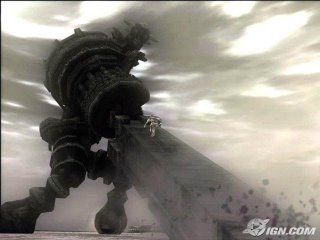In 1950, Clive Staples Lewis introduced the world to one of todays most well-known and beloved fantasy realms, the land of Narnia. The Lion, the Witch, and the Wardrobe (noted as “the LWW” hereafter) was the first of seven Narnia Chronicles to be published and is probably the most celebrated of Lewis’ fictional works. Although from a literary standpoint, the book is thoroughly captivating and considered a masterpiece by most critics, C.S. Lewis managed to create much more than just a great piece of literature. The LWW is richly layered with Christian themes, messages, and parallels that add tremendous depth to an already profound story of courage, hope, and forgiveness. The Chronicles of Narnia: LWW offers the most classic example of a Christian parallel (later to be defined as a Christian supposal) of any fictional book in modern literature. The LWW meets three standards that make it a superb parallel to the Christian faith; it contains a Messiah, or Christ figure, presented as Aslan, the great Lion; it portrays the problem of sin and temptation in the White Witch and Turkish Delight; and it vividly presents the gospel story of forgiveness and redemption through the character of Edmund.
In the land of Narnia, Aslan is the “Son of the Emperor across the Sea,” a great and noble Lion. The very name of Aslan strikes fear in heart of those who delight in evil, yet kindles hope in those who long for his appearing. In order to understand the character of Aslan and his relation to Jesus, one must recognize Lewis’ intention in writing the Narnia Chronicles. Lewis did not set out to create a direct Christian allegory. In fact, Lewis explicitly warns readers against trying to make a one-for-one match between Narnia and the real world. In a May 1954 letter to a fifth grade class in Maryland, he writes, "You are mistaken when you think everything in the books 'represents' something in this world. Things do that in The Pilgrim's Progress but I'm not writing in that way" (Letters to Children). Instead of a straightforward allegory, Narnia is what Lewis called a Christian “supposal.” In a December 1959 letter to a young girl named Sophia Storr, he explains the difference:
I don't say. 'Let us represent Christ as Aslan.' I say, 'Supposing there was a world like Narnia, and supposing, like ours, it needed redemption, let us imagine what sort of Incarnation and Passion and Resurrection Christ would have there.' (Letters to Children)
He elaborates on this point in a December 1958 letter to a lady named Mrs. Hook:
[Aslan] is an invention giving an imaginary answer to the question 'What might Christ become like if there really were a world like Narnia and He chose to be incarnate and die and rise again in that world as He actually has done in ours?' This is not allegory at all. (Letters of C.S. Lewis)
With that being understood, there are some obvious similarities between Aslan and Jesus. The most apparent is the sacrificial death and glorious resurrection that both Jesus and Aslan each undergo. Each lays down his life for another’s, to pay the penalty for a crime that someone else committed so that that person can go free; this theme will be explored further through the character of Edmund. All points considered, Lewis’ depiction of Aslan as the incarnate Messiah of a different world makes the LWW the best example of a Christian supposal in modern literature.
The second Christian theme contained in the LWW is that of sin, evil, and temptation. The White Witch, who claims to be the true Queen of Narnia, is a clear representation of evil and deception. But even more intriguing than the White Witch herself is an enticing concoction that she creates to lure Edmund, one of the four Pevensie children who wanders into Narnia, into her deceptive plan to prevent the prophecy (about her reign coming to an end) of being fulfilled. Turkish Delight is a bewitched candy that the Witch gives to Edmund to put him under her spell and convince him to betray his brother, his sisters, and Aslan. Edmund eventually gives in to his desires. At first, it’s just for the Turkish Delight, but soon afterwards for the Witch’s feigned promises of power and prestige. The story of Edmund’s temptation alludes to Jesus’ teaching in Matthew chapter eight, where He explains that “everyone who commits sin is the slave of sin.” The New Testament writer James also expands on this theme, “…each one is tempted when he is carried away and enticed by his own lust. Then when lust has conceived, it gives birth to sin; and when sin is accomplished, it brings forth death” (James 1:14-15 NASB). In fact, the sentence that Edmund receives for his treachery is certain death from the White Witch; she refers to the “deep magic” written on the Stone Table that states if anyone becomes a traitor, then they rightfully belong to the White Witch. The deep magic written on the Stone Table is much akin to the Law that only brings sin and death, which the New Testament writers explain in their gospels and epistles. The apostle Paul declares that “all have sinned and fallen short of the glory of God,” and that the “wages of sin is death…” (Romans 3:23 and 6:23 NASB). Finally, Edmund realizes his mistakes and deeply wishes that he could take them back. But first, the “deep magic” must be dealt with or Edmund will receive certain death. This powerful Christian imagery demonstrates Lewis’ literary genius and helps to create the LWW as a classic example of a fictional Christian supposal.
Finally, the most important theme that the LWW contains is the gospel message of forgiveness and redemption. Since Edmund is guilty of betraying his friends and cannot save himself from his deserved punishment, he needs someone to intervene, to take his place. Aslan does just that; in what seems like foolishness, Aslan sacrifices himself on Edmund’s behalf while patiently enduring brutal torture until he is eventually murdered by the White Witch and her minions. This is a direct parallel of Jesus’ death and crucifixion. The Old Testament prophet, speaking of the Messiah, wrote these words,
He was pierced through for our transgressions; He was crushed for our iniquities… He was oppressed and He was afflicted, yet He did not open His mouth; like a lamb that is led to slaughter, and like a sheep that is silent before its shearers, so He did not open His mouth. (Isaiah 53:5,7 NASB)
If the story ended there, all would be lost; the White Witch would rule Narnia and Edmund’s life would be forfeit. But death was not victorious. With a great cracking and deafening noise the stone table was split in two and Aslan rose. Confused, the two Pevensie girls asked Aslan what had happened. Aslan explains that,
…though the Witch knew the Deep Magic, there is a magic deeper still which she did not know. Her knowledge goes back only to the dawn of time. But if she could have looked a little further back, into the stillness and the darkness before time dawned, she would have read there a different incantation. She would have known that when a willing victim who had committed no treachery was killed in a traitor’s stead, the Table would crack and Death itself would start working backwards. (75)
Very similarly, when Jesus died, the curtain of the temple was torn from top to bottom and when he rose from the dead he appeared to his disciples. Just as Aslan took the place of Edmund, Jesus took the place of sinners who were bound by the Law to sin and death. The “deeper magic from before the dawn of time” is parallel to God’s plan for salvation for all those who would ever believe in Him. Speaking of the resurrection of Christ, the apostle Paul writes,
‘O Death, where is your victory? O death, where is your sting?’ The sting of death is sin, and the power of sin is the law; but thanks be to God, who gives us the victory through our Lord Jesus Christ. (1 Corinthians 15:55-56 NASB)
The gospel story in the LWW is a vivid representation of forgiveness and redemption found in Jesus, which makes Lewis’ story a classic Christian supposal.
Even with all of its heavy Christian imagery, one may still argue that the LWW is only a fantasy story that happens to have “spiritual” themes. This is derived from the fact that so many people will read the Narnia Chronicles without ever noticing the Biblical parallels. Although this may be true, one must remember that C.S. Lewis very clearly explained that the Narnia was a Christian supposal, and though the LWW does have “spiritual” themes, they are undeniably Biblical. In fact, at the end of The Voyage of the Dawn Treader, Aslan explains that He lives in the real world as well as in Narnia,
…but there I have another name. You must learn to now me by that name. This was the very reason why you were brought to Narnia, that by knowing me here for a little, you may know me better there. (123)
In June 1953, an eleven-year-old girl named Hila wrote to Lewis, asking what the other name that Aslan went by in our world was. Lewis replied,
As to Aslan's other name, well I want you to guess. Has there never been anyone in this world who (1) Arrived at the same time as Father Christmas. (2) Said he was the son of the Great Emperor. (3) Gave himself up for someone else's fault to be jeered at and killed by wicked people. (4) Came to life again....Don't you really know His name in this world. (Letters to Children, 1996)
The Chronicles of Narnia convey undeniably Biblical references and parallels which help to make it a spectacular example of a Christian supposal.
In summary, The Chronicles of Narnia: the Lion, the Witch, and the Wardrobe, contains the most important tenets of the Christian faith which makes it an ideal parallel in the world of fantasy literature. By supposing Christ in the character of Aslan, demonstrating the fatal problem of sin and temptation, and retelling the gospel story through the character of Edmund, the LWW becomes the most classic example of a Christian supposal in fictional literature. When all has been heard, readers and fans of C.S. Lewis and his Narnia Chronicles can appreciate all-the-more his keen ability to masterfully intertwine such beautiful stories with rich Christian imagery into an unforgettable masterpiece that continues to stand the test of time.
A true Narnian,
Jonathan
 As many of you well know, my blog has been rather sparse as of late. In fact, the crickets have been chirping for well over two weeks by now. The reason for this scarcity is mostly due to the Microsoft game developers for creating one of the most addicting games I have ever played: Fable. So far (according the in-game clock) I have spent over 19 hours the past week or so immersed in a fantasy world.
As many of you well know, my blog has been rather sparse as of late. In fact, the crickets have been chirping for well over two weeks by now. The reason for this scarcity is mostly due to the Microsoft game developers for creating one of the most addicting games I have ever played: Fable. So far (according the in-game clock) I have spent over 19 hours the past week or so immersed in a fantasy world.



![The Journey[Man]](https://blogger.googleusercontent.com/img/b/R29vZ2xl/AVvXsEj_ZPazi3rswD412kr4th-pnQDZ_GQoYX_5beOOO16V85j1qRkPWrSJkIOZHUiIsCSqvhF3aiV-QlHBR1Sm2DYEzQHkzuBnknvO2-JGZhpx2bR-Y-qHb7CSA5dSIOalaWzHv4J59w/s1600-r/IMG_1462.jpg)

